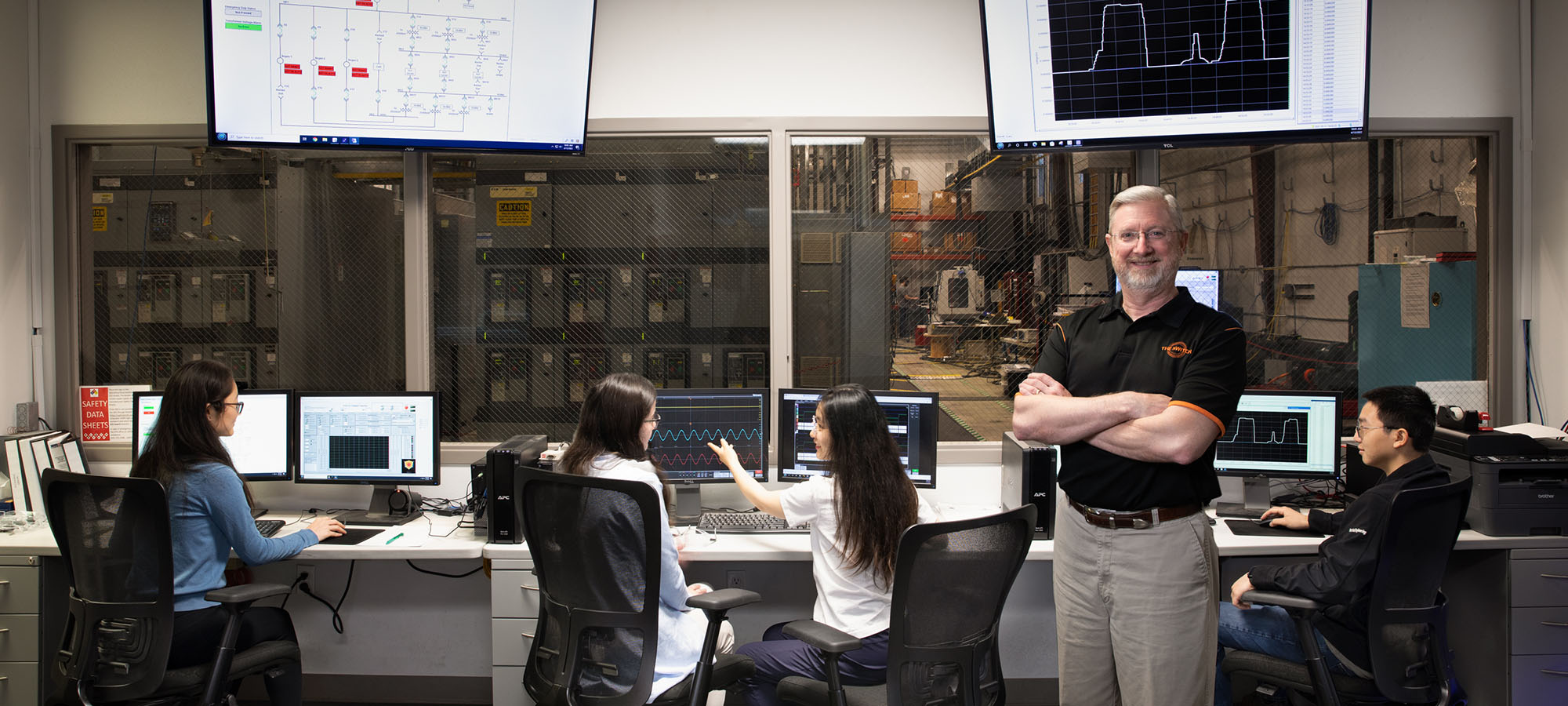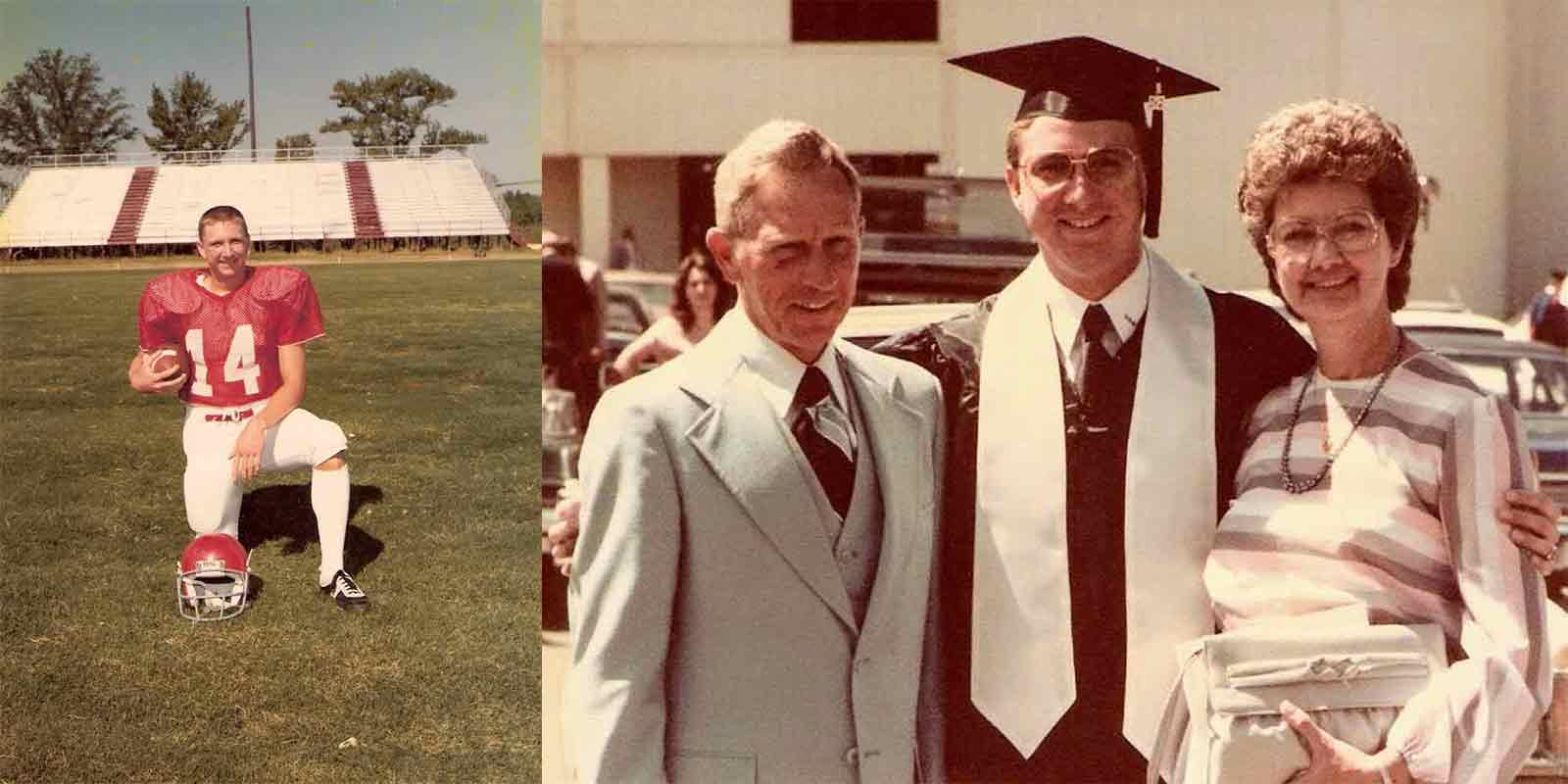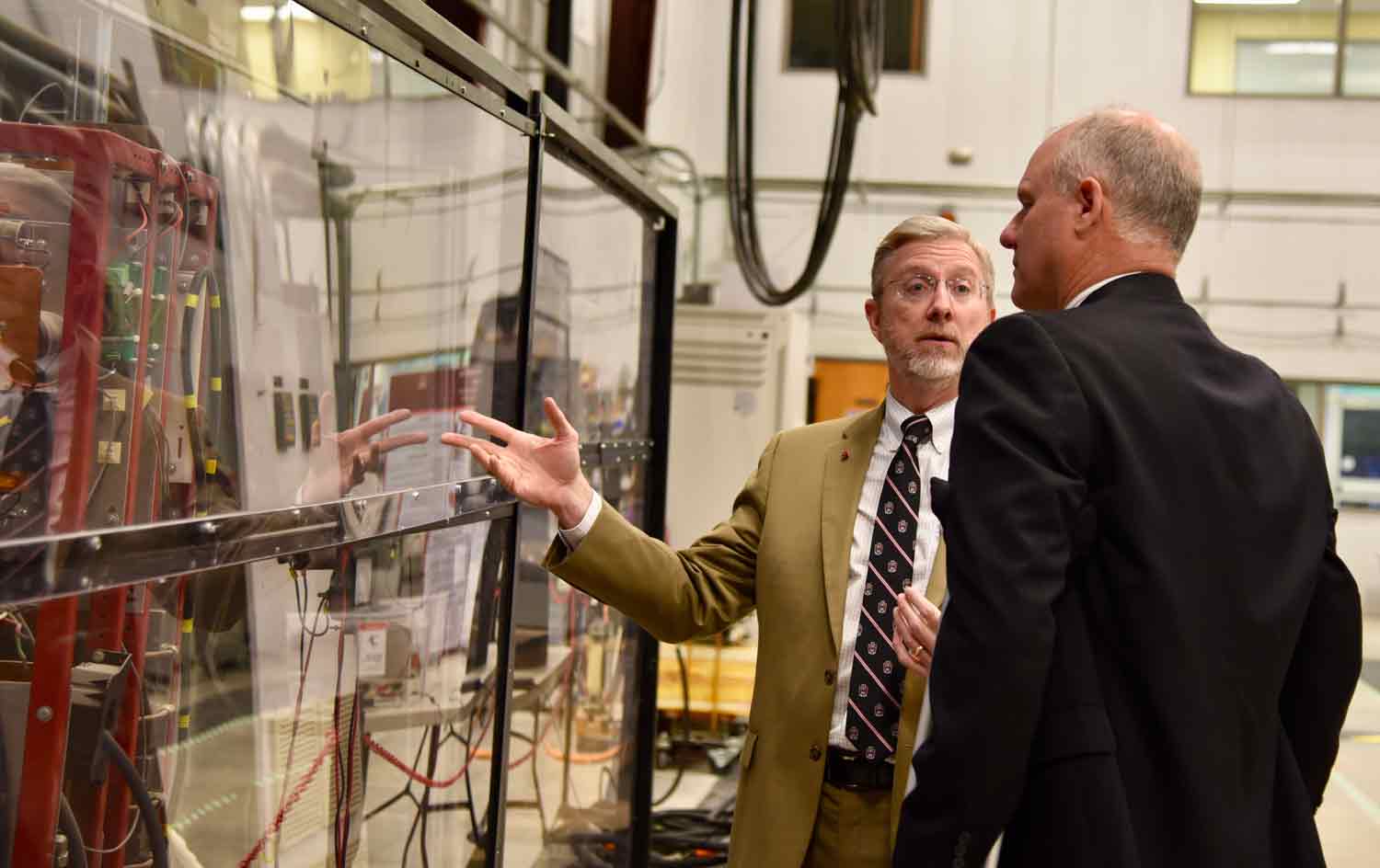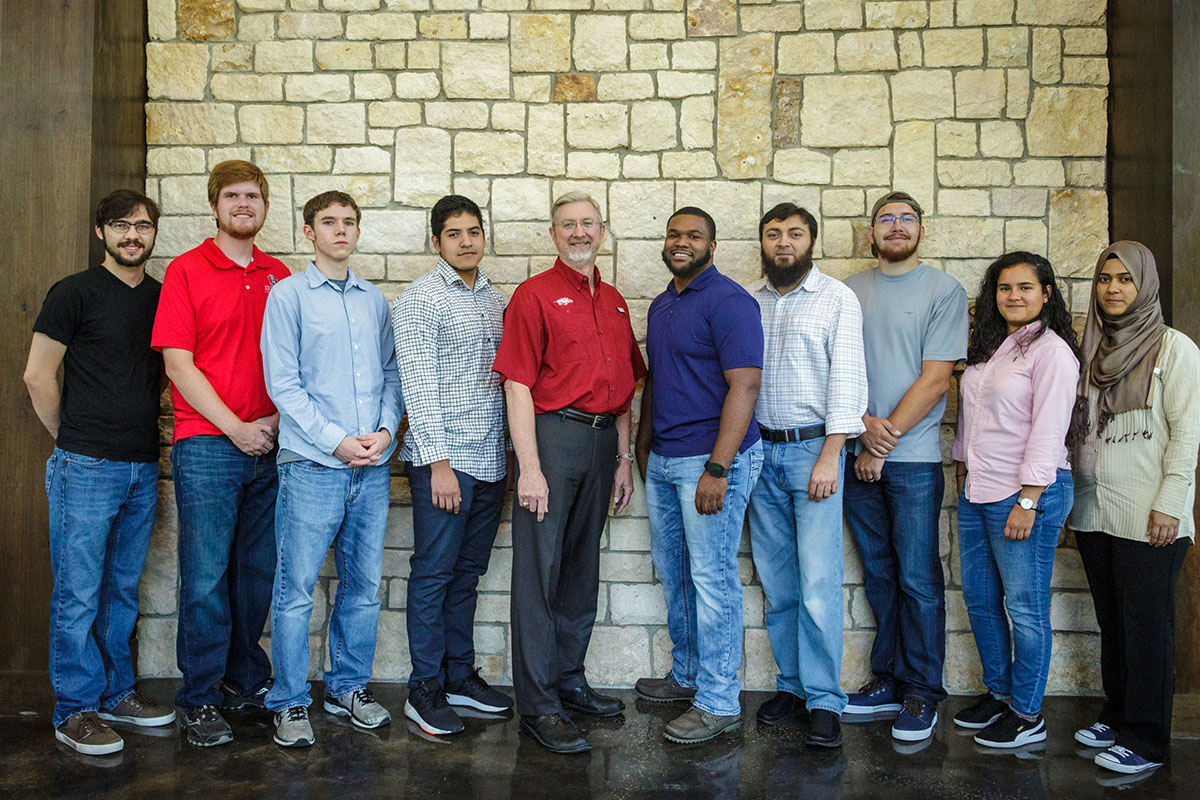
The Power Conductor
If it feels as though Alan Mantooth is associated with every major research center related to power management at the University of Arkansas, it’s because he is. Thanks, in part, to his work, the university is considered to be among the top power electronics programs in the world by its peers.
Mantooth, a distinguished professor of electrical engineering, is advancing the use of silicon carbide, protecting the nation’s power grid and decreasing the environmental impacts of aviation. And he helps bring in millions of dollars of national funding through the many research centers that touch on his work. There’s GRAPES – the GRid-Connected Advanced Power Electronics Systems, POETS – Power Optimization of Electro-Thermal Systems and even SEEDS – the Cybersecurity Center for Secure, Evolvable Energy Delivery Systems. And that’s just the tip of the acronymic iceberg.
 The University of Arkansas Power Group consists of world-class faculty experts in power and energy research, spanning engineering
and science disciplines, jointly working to deliver next-generation electric vehicles,
renewable energy systems, grid infrastructure, and cybersecurity.
The University of Arkansas Power Group consists of world-class faculty experts in power and energy research, spanning engineering
and science disciplines, jointly working to deliver next-generation electric vehicles,
renewable energy systems, grid infrastructure, and cybersecurity.
He's Arkansas raised, Razorback proud and wants to boost the reputation of the state’s land grant university. He is also a mentor to students, an often-published researcher and an enthusiastic conversationalist about engineering. He can answer all the questions about semiconductors, electronics, and cyber hardened products that are posed, but one can’t help but wonder, How does he manage it all?
Starting Out and Stepping Up
Alan Mantooth grew up in Jacksonville, Arkansas, and was one of three co-valedictorians who chose to attend the U of A. After beginning in the erstwhile industrial management program, he switched to engineering during the second semester of his freshman year. As it turned out, his classmates from Jacksonville did the same. And two of the three – Mantooth included – graduated at the top of their class in electrical engineering.
After earning a master’s degree from the university, Mantooth obtained a doctorate from Georgia Tech, followed by three offers from universities and three from industry. He was drawn to the idea of going out into the world to gain experience and wanted to grow professionally – not just scientifically.
He joined a start-up company in Oregon and spent eight years working in engineering, but alongside marketing, sales, customer support, proposal writers, and team leaders. It was, he said, like earning a second doctorate and helped cultivate a vision for the product he wanted to develop in the future.
“As a professor now, I have to wear all these hats,” he said. “So, the experience was invaluable.”

When he returned to the U of A in 1998, Mantooth’s primary motivation was to enhance its reputation. He knew this could best be accomplished by fostering key relationships with other reputable researchers and universities and would ultimately pave the way for others.
Pave the way, he has. In fact, Mantooth is a master at juggling the multiple hats he wears and excelling in all facets of his job. He accumulates accolades, helps secure millions of dollars of grant funding and represents the university on a global level. And while his original motivation may have been to partner with others who had solid reputations, Mantooth is now the person many seek out for such partnerships.
“We can engage with any company or funding agency in one way or another,” he said. “We are highly admired by other universities.”

A Gem for the Natural State
The research, connections and sheer scientific brilliance offered by the university make it a unique and unparalleled option for prospective students interested in power and energy technologies. And as a former Arkansas high school graduate, Mantooth hopes more parents realize what a gem the U of A is for the Natural State.
"I want Arkansas parents to know what we’ve created for their students right here,” he said. “Other students don’t get the opportunities ours do. It’s a chance for young people to pursue their dreams.”

 Mantooth has been involved in starting three companies since 1998 and helped a fourth
reach the merger and acquisition phase.
Mantooth has been involved in starting three companies since 1998 and helped a fourth
reach the merger and acquisition phase.
Mantooth goes on to note that there are multiple tracks available to students who want to make a difference in the world, and the university’s start-up mentality is part of the ecosystem that has helped the region thrive. It’s also consistent with the entrepreneurial mindset of Arkansas.
“If you’re an Arkansas high school graduate, go to college,” he says. “Put your software skills to use in strengthening cyber security. Or why not start a business here? You learn what to do and what not to do when you start a business. Learning and growth both come out of these opportunities.”
 Over the years, Alan Mantooth has helped bring in millions of dollars of external
research funding and has helped bolster the international reputation of the University
of Arkansas.
Over the years, Alan Mantooth has helped bring in millions of dollars of external
research funding and has helped bolster the international reputation of the University
of Arkansas.
$18 million from the National Science Foundation to build and operate a national silicon carbide research facility at the University of Arkansas. (October 2021)
More than $5 million from the Army Research Office and the Army Research Laboratory for the silicon carbide semiconductor fabrication facility. (October 2021)
A five-year, $500,000 award from the National Science Foundation to continue work at GRAPES to develop new technologies for advanced power electronic systems, develop new software and tools for controlling embedded- and grid-connected power electronics, and educate engineers who understand the power electronic technologies. (April 2020)
$600,000 of an overall $6 million grant from NASA to design a commercial aircraft using an integrated vehicle system with a quiet, efficient propulsion system that produces zero carbon dioxide, nitrogen oxide and particulate matter emissions at the vehicle level. (September 2019)
A $1.5 million grant from the U.S. Department of Energy to develop the next generation of electronics and power modules for electric and hybrid vehicles. (April 2019)
A $3.5 million grant from the Advanced Research Projects Agency – Energy to develop next generation electronics for hybrid electric heavy equipment such bulldozers and aircraft. (2018)
Collaborate with Us!
Learn more about collaborating with the university to advance the U.S. semiconductor economy.